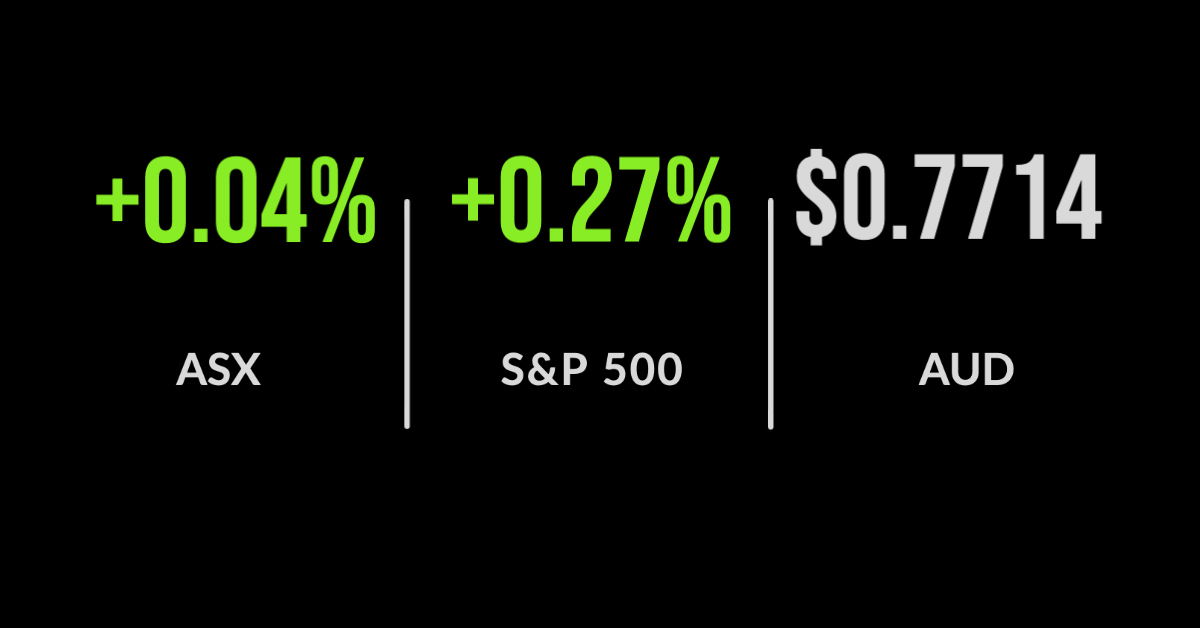Banks help ASX eke out narrow gain
Bank rally not enough, Westpac hike dividend, job ads continue to surprise
The ASX200 (ASX:XJO) rose just three points to begin the week, with a powerful day from the financials sector (+1.4%) which represents some 30% of the index not enough to overcome broader weakness.
Energy and materials continue to detract amid signs that inflation is being experienced across the construction and consumer sectors; both were down over 1%.
Westpac (ASX:WBC) dominated the headlines being the first bank to deliver its half-year result. All eyes were on the dividend, which didn’t disappoint, management confirmed a 58 cent per share payout.
This pales in comparison to the 94 cents paid as an interim amount in 2019 or the $1.74 paid for the full calendar year. Revenue increased 1% to $10.7 billion with cash profit nearly tripling, increasing 256% to $3.54 billion.
The biggest driver was the low starting point in early 2020 during which each of the major banks increased their bad debt expectations resulting in short-term losses.
Of more concern for investors should be the fall in their net interest margin (NIM) by four basis points to 2.09%, which represents the ‘fee’ they gain from every loan.
The big news was an announcement that they would be seeking to cut costs to $8 billion from $12.7 billion with more branch closures and redundancies likely to follow. Shares jumped 5.1% on the news, with National Australia Bank (ASX:NAB) also benefitting up 2.1%.
Premier comes to the party, Freedom still under pressure, Omni Bridgeway hit by insurance
Premier Investments (ASX:PMV) have finally bowed to political pressure, declaring they would be repaying $15.6 million received under the JobKeeper program.
They had previously indicated it would be used to ensure employees continued to receive full pay despite lockdowns, but with earnings set to meet expectations they have flipped their decision, shares were down 1.3%.
ANZJob Ads continue to recover, jumping 4.7% in April, and whilst a good sign for the economy, it offers growing evidence that Australia lacks willing employees as the labour market tightens; Seek (ASX:SEK) fell slightly on the news.
Freedom Food’s slow turnaround continued, falling 2.4% after announcing another 10.7% fall in revenue in the first quarter, hitting $141.6 million. Plant based beverages remain the highlight, growing 7.0% on the previous quarter.
Omni Bridgeway (ASX:OBL) lead the market falls, down 5.6% after the court approved a $440 million settlement payment over the Wivenhoe dam collapse, with the group likely to receive just $30 million under the deal.
Dow adds 200 points, Nasdaq weakens, Pfizer to begin exports, Estee Lauder disappoints
The Dow Jones added another 200 points to begin the week, jumping 0.7% as commodities and industrials benefitted from a pivot towards the reopening trade.
This comes after New York legislators announced the city would fully reopen from 1 July with more than 40% of the US population having now been vaccinated.
The Nasdaq weakened 0.5%, with Amazon (NYSE:AMZN) and Tesla (NYSE:TSLA) pushing the technology index lower.
Shares in COVID-19 vaccine manufacturer Pfizer jumped 3.1% after receiving approval to begin exporting its successful vaccine.
Mexico and Canada will be the first in the world outside of the US Government to receive exports of the domestically made shots, with the US finally coming to the party.
A survey of materials prices hit the highest level since 2008 as further confirmation that inflation is already here.
Finally, Estee Lauder, the makeup group (NYSE:EL), fell 7.9% after it failed to live up to high expectations, as sales jumped just 16% in the quarter.







